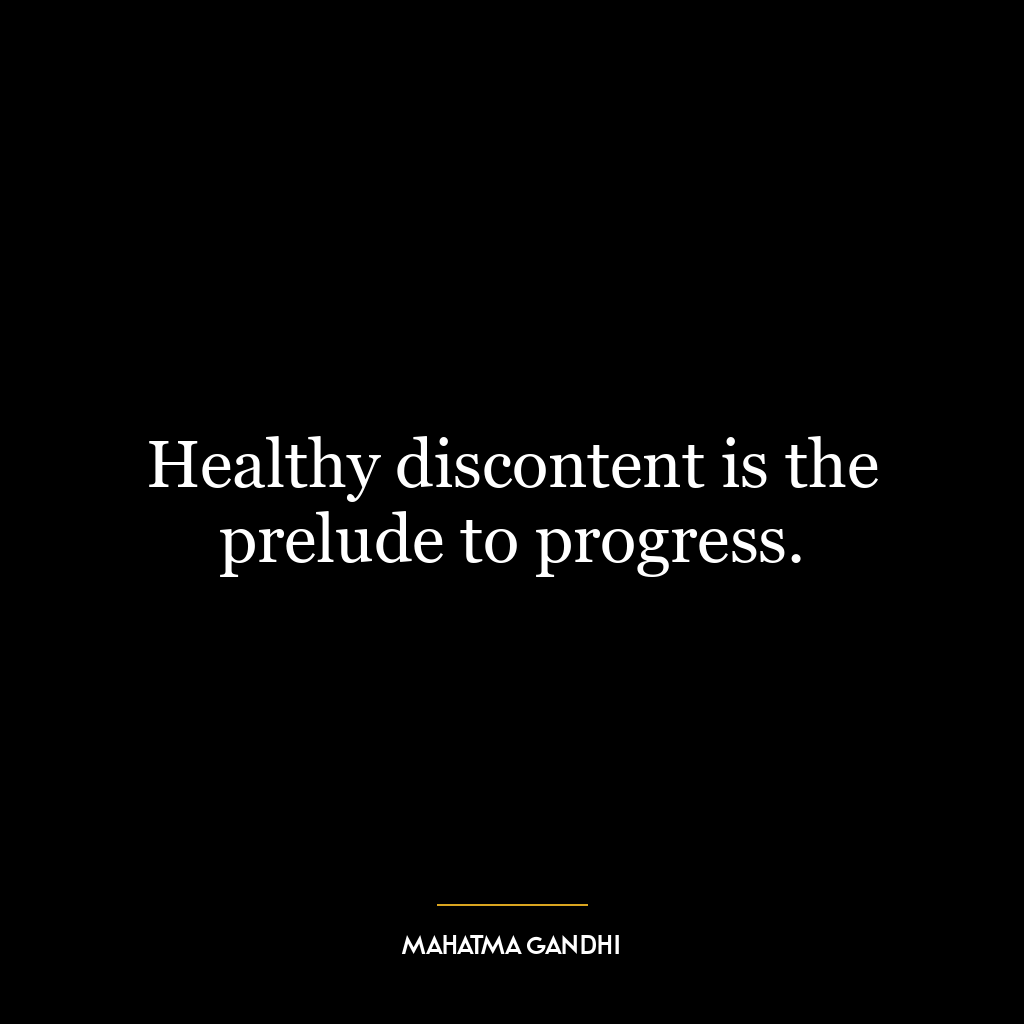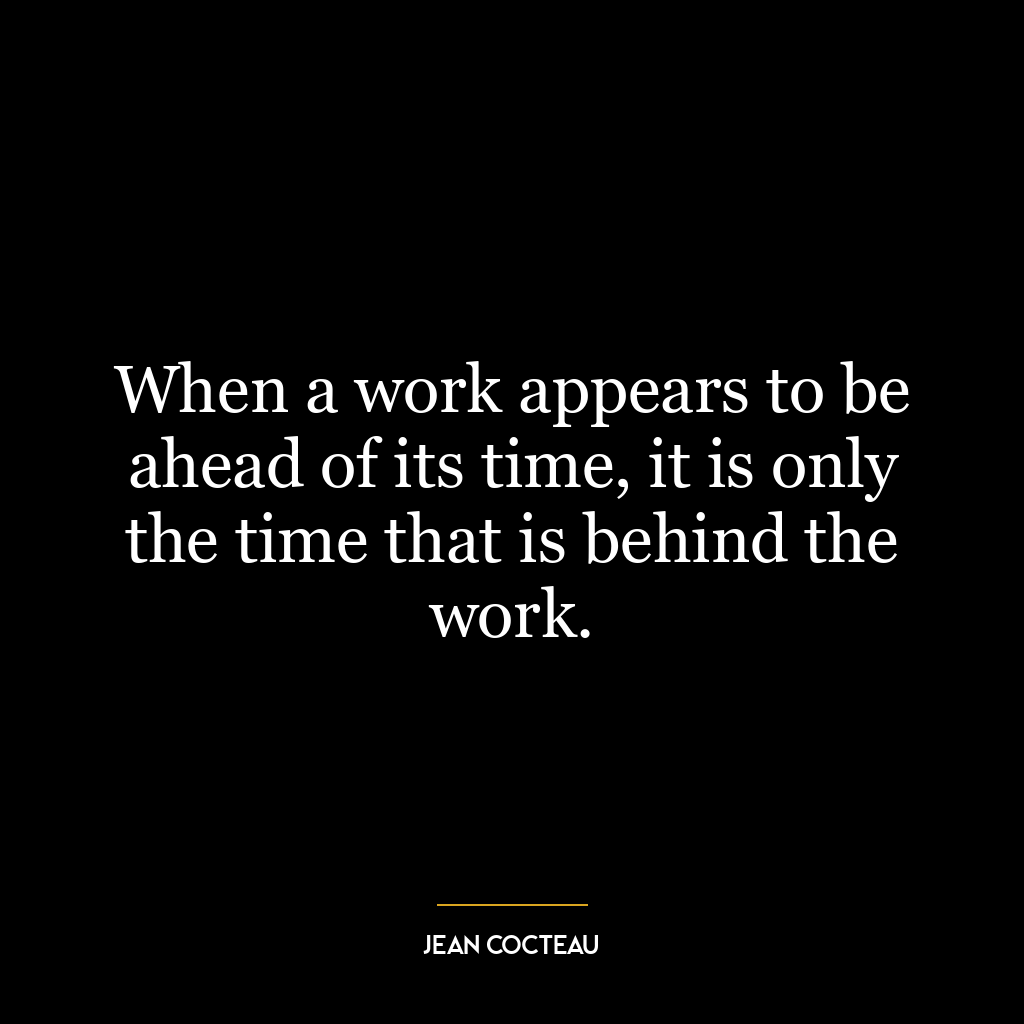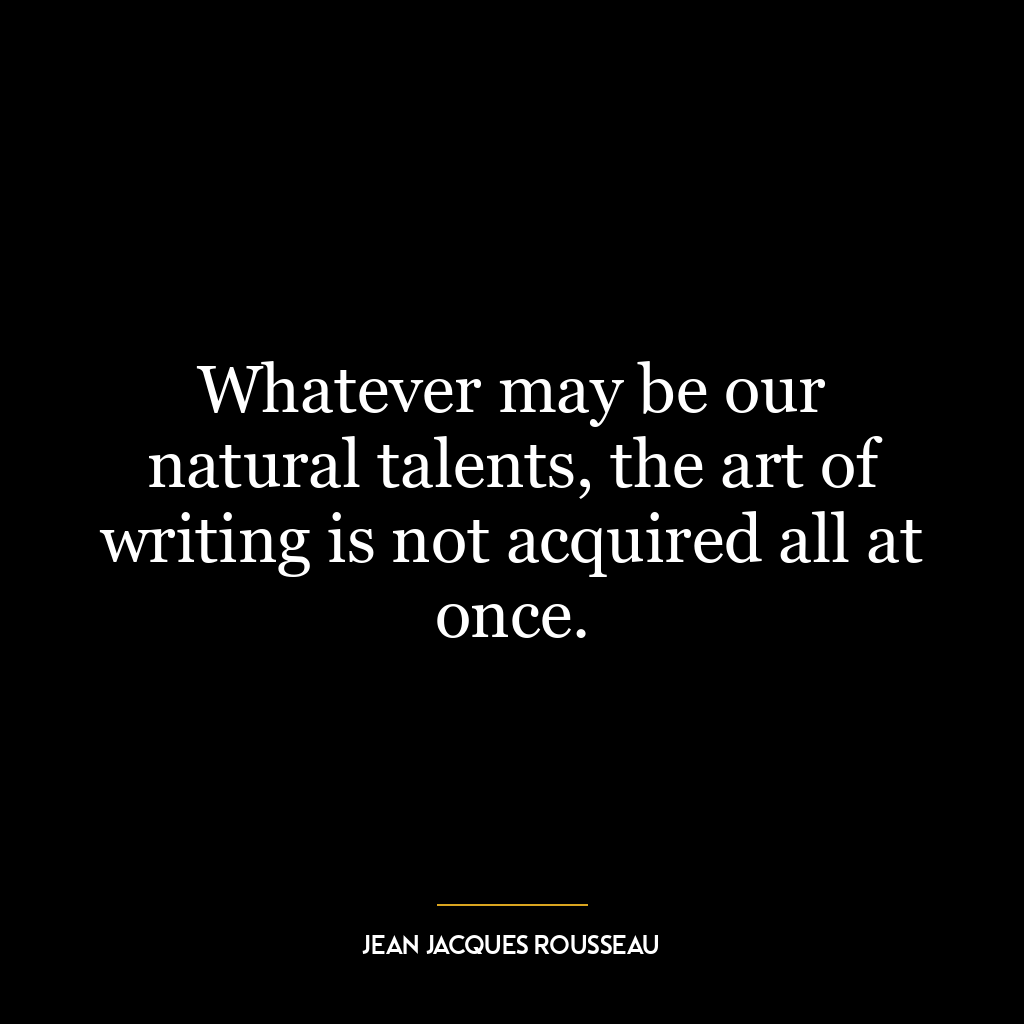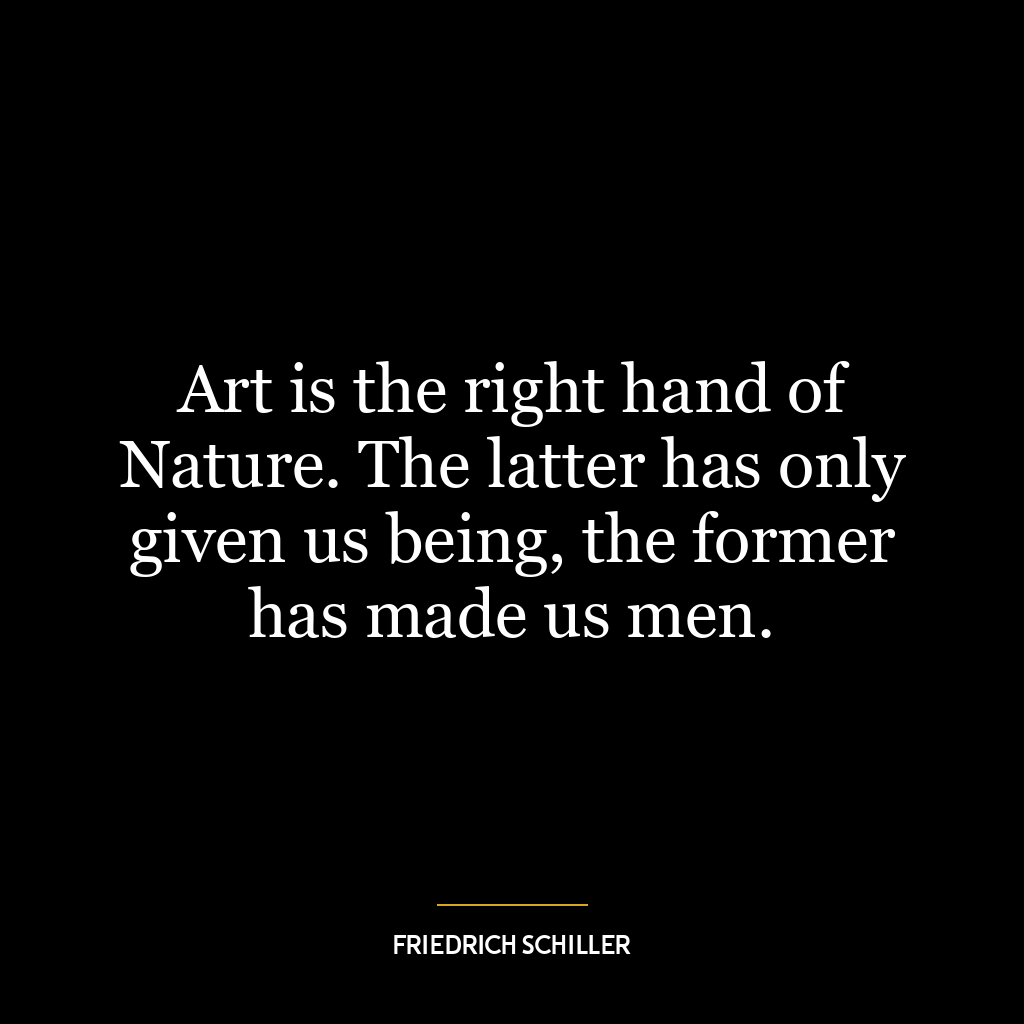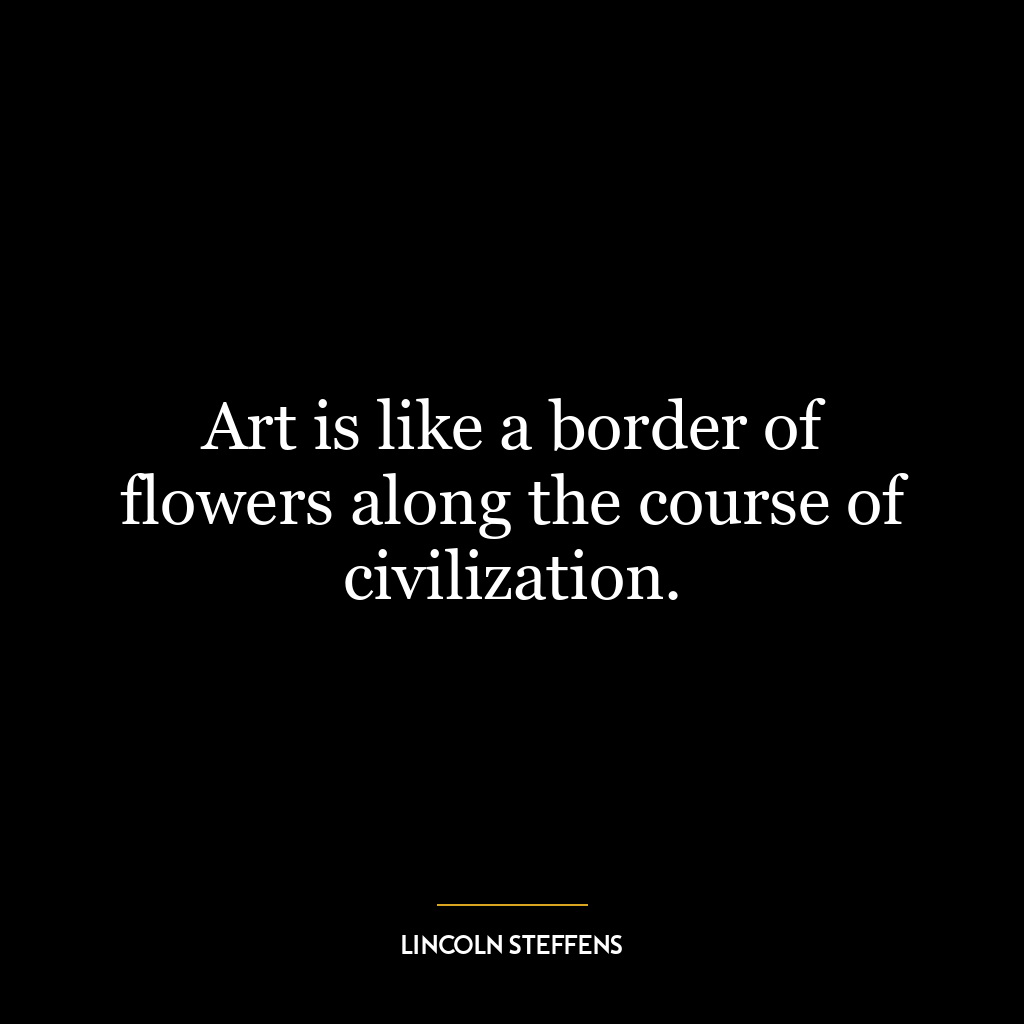Healthy discontent is the prelude to progress.
“Healthy discontent is the prelude to progress” is a profound statement that speaks to the human condition and our capacity for growth and transformation. The term “healthy discontent” refers to a constructive form of dissatisfaction or unease with the current state of affairs. It’s not a paralyzing or negative feeling, but rather a motivational force that prompts us to seek change and improvement.
This quote suggests that progress, whether on a personal or societal level, is often preceded by a sense of discontent. It’s the recognition that something can be better, that our current circumstances or behaviors aren’t aligned with our potential or ideals. This discontent serves as a catalyst for change, pushing us out of complacency and inspiring us to strive for betterment.
Applying this concept to personal development, it’s often when we are discontented with certain aspects of our lives that we are motivated to make changes. For example, if we’re discontented with our physical health, we might be motivated to start exercising regularly and eating healthier. If we’re discontented with our job, we might seek further education or a career change. In this sense, discontent can serve as a powerful motivator for personal growth and self-improvement.
In a broader societal context, healthy discontent can lead to significant progress and reform. For instance, discontent with social injustices or environmental degradation can lead to advocacy, activism, and eventually, policy changes.
However, it’s important to note that the discontent referred to here is “healthy” – it’s not about harboring negative emotions or being perpetually dissatisfied. Instead, it’s about recognizing areas for improvement and harnessing that discontent as a positive force for change. It’s a proactive, not a reactive stance, aimed at creating a better future.
In today’s world, where many challenges such as climate change, social inequality, and political polarization persist, this idea is more relevant than ever. It encourages us to question the status quo, to not settle for less, and to channel our discontent into constructive action. It’s a call to turn our dissatisfaction into a driving force for progress, both in our personal lives and in the world at large.

